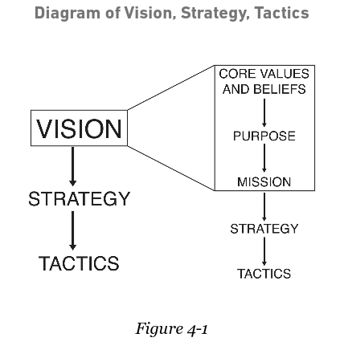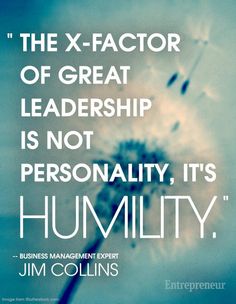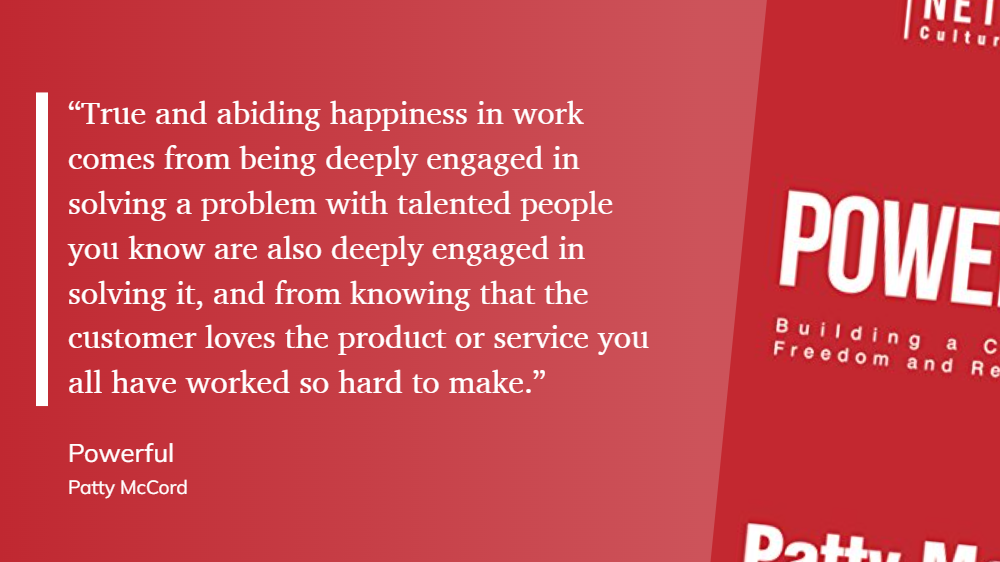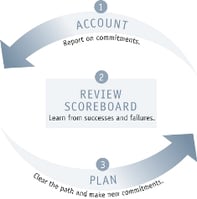I am grateful this week of Thanksgiving for Katie Brenneman, guest writer, who provides insights into why you should invest in your leadership skills to improve your team's level of job satisfaction:
 Your employees are the heart and soul of your business. They are the ones who make the magic happen. Without them, your company simply would not exist.
Your employees are the heart and soul of your business. They are the ones who make the magic happen. Without them, your company simply would not exist.
However, teams don’t just coalesce, endure, and thrive on their own. They need strong leaders to help them achieve their full potential. Effective leadership is the secret sauce that not only drives the efficacy of the team but also galvanizes the performance, engagement, and satisfaction of each individual team member.
This article examines the role of leadership in building and maintaining successful teams and describes the leadership skills you should invest in to optimize employee satisfaction.
Cultivating Vision, Purpose, and Goals
One of the most important skills you can develop as a leader is the aptitude for bringing out the best in your employees. It’s unlikely that you’re going to cultivate a happy, high-performing, and loyal workforce if you’re not making your employee’s personal and professional development a top priority.
Strong leaders excel in helping their employees become better than they ever imagined they could be. This requires you to relate to your employees as more than just “associates.” They should be recognized and addressed as integral to the present and future success of the team and the organization.
This means collaborating with employees, both individually and as a team, to define a clear vision, purpose, and set of goals for the collective, and for each individual team member. This shared vision and purpose holds your team together and ensures everyone is rowing in the same direction, providing you with a clear framework from which to lead.
By partnering with employees to define their individual career goals, you promote loyalty, satisfaction, and growth. Your employees will appreciate the unique role they play in advancing group and organizational goals as they cultivate a clear vision of their own future trajectory with the company. Encouraging workers to engage and invest in your business is the most effective way to support employee satisfaction. You invest in them first.
Cultivating a Culture of Mental Health
There are few greater threats to your employee's productivity, loyalty, well-being, and satisfaction than mental illness. In the aftermath of the greatest public health crisis in the modern era, plus continued economic uncertainty, your workers may be experiencing anxiety, depression, and trauma.
Strong leaders develop the skills to support employees’ mental health. This includes providing access to affordable, high-quality mental healthcare. Leaders can model the cultivation of a healthy work-life balance by encouraging employees to take “mental health days,” limit working hours, enjoy flex scheduling, and remote work opportunities when needed.
An effective leader committed to the well-being and satisfaction of their employees will develop the skills necessary to recognize the signs of a mental health challenge in their workers, such as significant changes in performance, mood, or physical health.
Connecting With the Team
To lead your team effectively, to ensure the happiness and engagement of each individual employee on your team, focus on cultivating your own relationship-building skills. This links back to the idea of relating to your employees as more than just “associates.” This ties directly into the truth that people need attention, not feedback.
Feedback assumes you know the truth about how your employees can improve. Attention empowers them to succeed by recognizing they are the source of their success.
Giving your team attention can take the form of regular check-ins. Take the time, for example, to routinely engage in conversations that aren’t work-related. Get to know employees as people, not just colleagues or subordinates. Learn about and even interact with their families. Build connections that aren’t based only on profits, productivity, and professional performance.
This is especially critical when you’re leading hybrid or fully remote teams. Employees who are rarely or never on site can easily begin to feel disengaged and dissatisfied. Offer ample opportunities for remote workers to interact with you and the rest of the team. Online game nights or in-person social gatherings, are ideal ways to help your employees feel valued, connected, and “seen.”
Cultivating healthy attention with your team builds rapport. Attention enables them to address challenges from a position of confidence because the rapport you’re building makes it implicit they are equals — human beings who deserve a seat at the table.
The Takeaway
Leadership is rarely something you are born with. It is a skill to be cultivated like any other. When you invest in y our leadership skills, you discover the effort pays rich dividends. It increases the performance, loyalty, and satisfaction of your employees. The most valuable leadership skill is your ability to cultivate a strong sense of purpose and vision in your team. Your ability to prioritize the mental well-being of each individual member of your staff, and to develop deep, personal relationships with every member of your team will elevate their performance and job satisfaction.
our leadership skills, you discover the effort pays rich dividends. It increases the performance, loyalty, and satisfaction of your employees. The most valuable leadership skill is your ability to cultivate a strong sense of purpose and vision in your team. Your ability to prioritize the mental well-being of each individual member of your staff, and to develop deep, personal relationships with every member of your team will elevate their performance and job satisfaction.
The best way to have superior customer satisfaction is high employee satisfaction.
To create an environment where everyone is inspired to give their best, contact Positioning Systems today to schedule a free exploratory meeting.
Growth demands Strategic Discipline.
Finding the Right People is critical. Facebook, Twitter, Zillow, and Peloton recently reduced the size of their teams. . Getting the right people on the bus starts with defining the meaning and purpose of your work. We’ll explore this again next blog.
Building an enduring great organization requires disciplined people, disciplined thought, disciplined action, superior results, producing a distinctive impact on the world.
Discipline sustains momentum, over a long period of time, laying the foundations for lasting endurance.
 A winning habit starts with 3 Strategic Disciplines: Priority, Metrics, and Meeting Rhythms. Forecasting, accountability, individual, and team performance improve dramatically.
A winning habit starts with 3 Strategic Disciplines: Priority, Metrics, and Meeting Rhythms. Forecasting, accountability, individual, and team performance improve dramatically.
Meeting Rhythms achieve a disciplined focus on performance metrics to drive growth.
Let Positioning Systems help your business achieve these outcomes on the Four most Important Decisions your business faces:
|
DECISION |
RESULT/OUTCOME |
|
PEOPLE |
|
|
STRATEGY |
|
|
EXECUTION |
|
|
CASH |
|
Positioning Systems helps mid-sized ($5M - $250M+) businesses Scale-UP. We align your business to focus on Your One Thing! Contact dwick@positioningsystems.com to Scale Up your business! Take our Four Decisions Needs Assessment to discover how your business measures against other Scaled Up companies. We’ll contact you.
NEXT BLOG –Who Starts with Defining Meaning & Purpose.png?width=680&height=526&name=empathy-and-job-meaning%20(Customer%20Empathy).png)






.jpeg?width=150&height=135&name=Hand%20with%20marker%20writing%20the%20question%20Whats%20Next_%20(1).jpeg)

